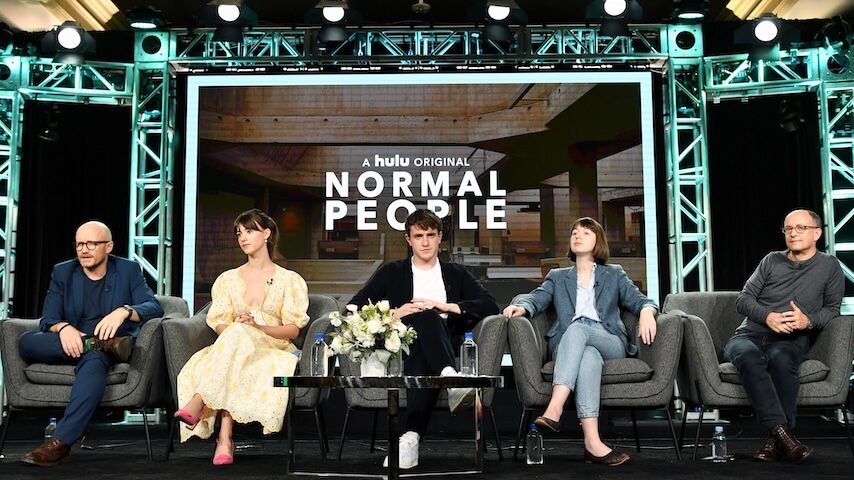And so, Rooney handed over the reins for the adaptation to other creatives (though she is credited as an executive producer on Conversations With Friends, which didn’t reach the cultural or critical acclaim as Normal People). Perhaps she learned something from that experience as well, because for the time being she has “decided not to accept any offers to option the rights for” Beautiful World, Where Are You, she says. “I felt like it was just time to take a break from that and let the book be its own thing for a while.”
Who knows what “a while” looks like; the door is clearly open for some kind of adaptation in the future. However, the baggage that came with adapting her first two novels right out of the gate may have turned her off on Hollywood. While working on Normal People was “in so many ways, amazing,” but “when the show was broadcast, that felt like a lot in terms of the amount of discourse that it generated and the amount of media attention.”
Rooney’s discomfort with “discourse” and media attention permeates the Times interview, so it’s a small wonder she’d get a bit Hollywood shy. Nevertheless, she has interesting things to say about becoming an unwitting phenomenon as she promotes her new book Intermezzo. “I suppose that the role afforded to young women in the culture tends to be very image-focused and less intellectual. The young women who are given the most prominent roles in our mainstream culture tend to be not political figures and not public intellectuals and not critics or commentators. That’s maybe the space that I’m trying to work within, and maybe I’m not legible within that space,” she reflects. “I sometimes feel people want to read me as something closer to a kind of celebrity figure, because that’s the way in which we’re used to reading the image of a young woman.”









































